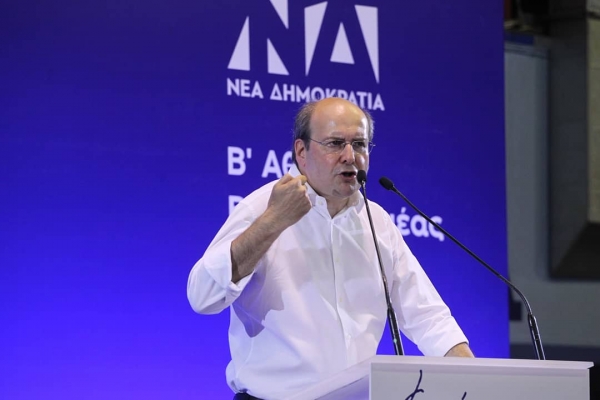Caspian Energy (CE): Mr. Hatzidakis, what role will the Southern Gas Corridor play in the gas balance of the country?
Kostis Hatzidakis, Minister of Environment and Energy of the Hellenic Republic: Greece was and remains instrumental in the implementation of the EU’s Southern Gas Corridor. It is the most important EU transit country for the transportation of Azeri gas to both Italy and Bulgaria, and an important consumer of Azeri gas in its own right.
CE: How did the delay of SCP’s (South Caucasus Pipeline) launch impact on the Greek consumers and on the EU’s gas market in general?
Kostis Hatzidakis: It did not have a significant impact since DEPA’s (Greek Public Gas Corporation) existing import contract with BOTAS remains active, so we did not have any supply shortages, if this is what you mean.
CE: What will be the gas policy of Greece for coming years?
Kostis Hatzidakis: Our policy is based on the premise of supply diversification of both import sources and import routes. At the same time the full operation of a third tank in our regasification terminal in Revythousa as well as the prospective construction of an Underground Gas Storage facility in the old South Kavala Gas field will markedly increase our strategic storage options and capabilities. We are also planning to provide additional incentives for the expansion of gas distribution networks throughout the country and the privatization of DEPA’s commercial and trading operations as our domestic demand is set to increase in the decade to come.
CE: Do you plan to shift economy to renewable sources of energy? What policy will Greece implement in terms of use of coal at power plants? Do you support plans on shifting these power plants to natural gas?
Kostis Hatzidakis: In our 10-year Energy and Climate Plan we are pursuing a policy of rapid decommissioning of our existing coal-fired electricity plants which we expect to completely phase out by 2028. We are implementing an ambitious policy of expanding the use of RES in our electricity sector in order to get more than 60% of our electricity generation from renewable energy resources by 2030. Our plan foresees that a significant part of our transition to a lower carbon electricity mix will be covered by additional gas demand that would expand our current consumption rate by 30%-40%.
CE: What are the plans in regard to the East Med gas pipeline? Isn’t it a very challenging project?
Kostis Hatzidakis: We are fully aware of the project’s many challenges, but we are optimistic that the East Med Gas Pipeline will emerge as a strategic game changer for the region and the EU’s energy security, as it offers to the EU simultaneous diversification of gas import sources and routes. The Intergovernmental Agreement that we signed in early January will be ratified from the Greek Parliament in the coming months and then we will continue with the implementation of the main feasibility study. East Med is certainly a very ambitious project, but the commitment of the EU, Greece, Cyprus and Israel to promote our cooperation is strong and stable. The signature of the Agreement was not just a political move. It will be followed by business initiatives in order for the pipeline to proceed by committing new gas supplies to be transported via the pipeline and by mobilizing the necessary resources to finance and carry out its Front End Engineering and Design study that is 50% financed by the European Commission.
CE: Do you plan to import liquefied gas from the USA?
Kostis Hatzidakis: There have been occasional imports of American LNG by DEPA last year but let me clarify that the Ministry does not “plan”, the private gas companies decide whether or not to import US, Qatari or Algerian LNG on the commercial merits of each individual transaction and the prices decided by international markets. From a geopolitical point of view we would more than welcome US LNG supplies because they offer a flexible and reliable tool to diversify our gas import portfolio.
Thank you for the interview





